
Beijing, January 14th— The 9th meeting of China-Japan ruling parties exchange mechanism, co-organized by the CPC, the Liberal Democratic Party of Japan and the Komeito Party of Japan, was held here today. The two sides had open and candid exchanges on the theme of "China-Japan relations under great changes — missions and responsibilities of the ruling parties". Liu Jianchao, Minister of the International Department of the CPC Central Committee, Hiroshi Moriyama, Secretary-General of the Liberal Democratic Party of Japan and Makoto Nishida, Secretary General of the Komeito Party of Japan, attended the meeting and delivered keynote speeches at the opening ceremony.
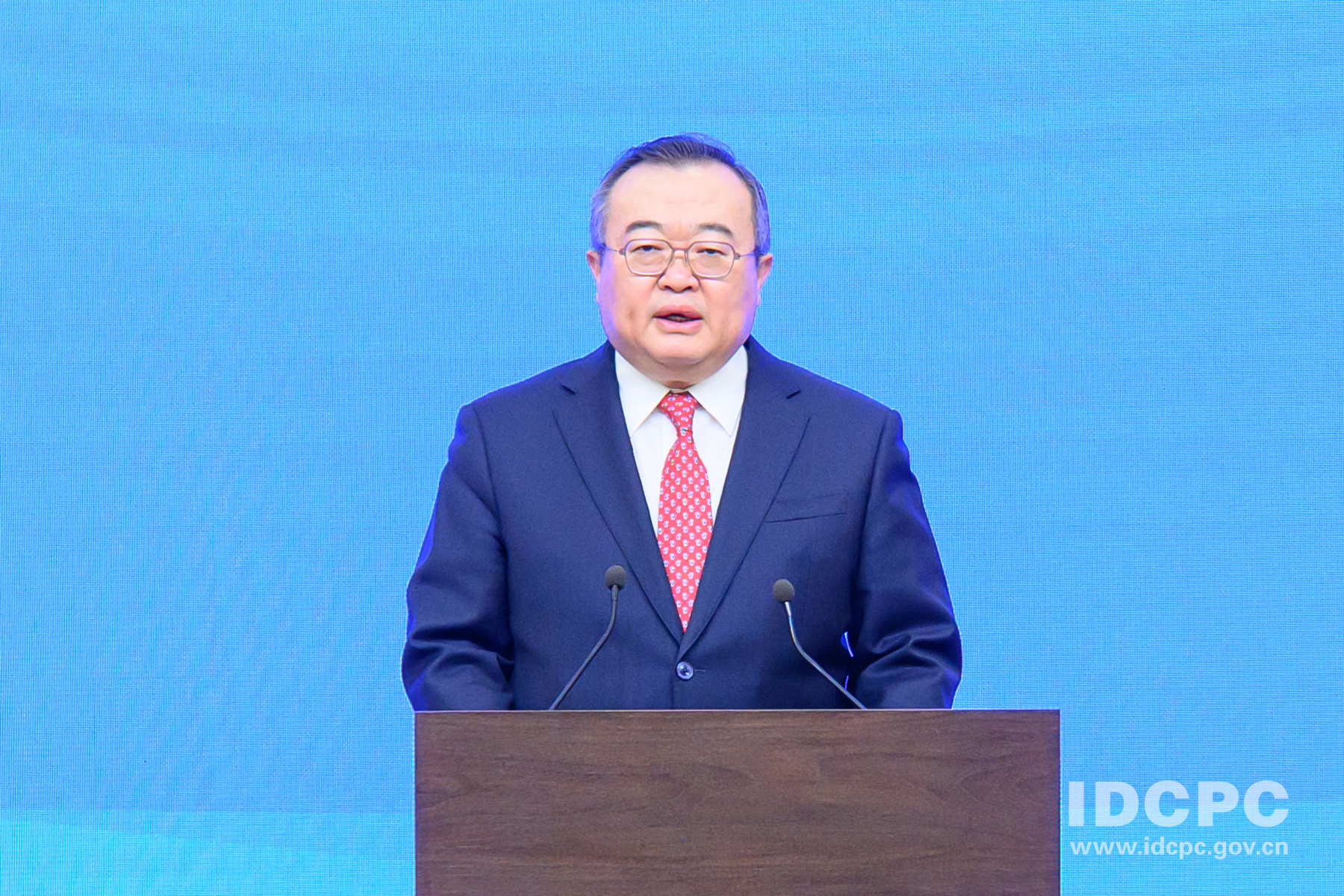
Liu said, at present, China-Japan relations are in a critical period of improvement and development, facing a historic choice of where to go. President Xi Jinping and Prime Minister Shigeru Ishiba agreed to make joint efforts to comprehensively promote China-Japan strategic relationship of mutual benefit, which has charted the course for the development of bilateral relations. The Chinese side is ready to work with the Japanese side to implement the important consensus reached by the leaders of the two countries and promote the building of constructive and stable China-Japan relations that meet the requirements of the new era. The two sides should adhere to peaceful coexistence, establish a correct understanding of each other, vigorously promote people-to-people and cultural exchanges and dialogue among civilizations, provide strong public support for the development of China-Japan relations, and create a healthy and rational public opinion environment. We should uphold harmony and coexistence, vigorously promote open regionalism, uphold economic globalization and free trade, and contribute to the development and prosperity of Asia and the world at large. We should uphold harmony in differences, encourage regional countries to address differences and disputes through an "Asian way" of dialogue and consultation, oppose inciting ideological confrontation and bloc confrontation, and safeguard the common security of all countries in the region.
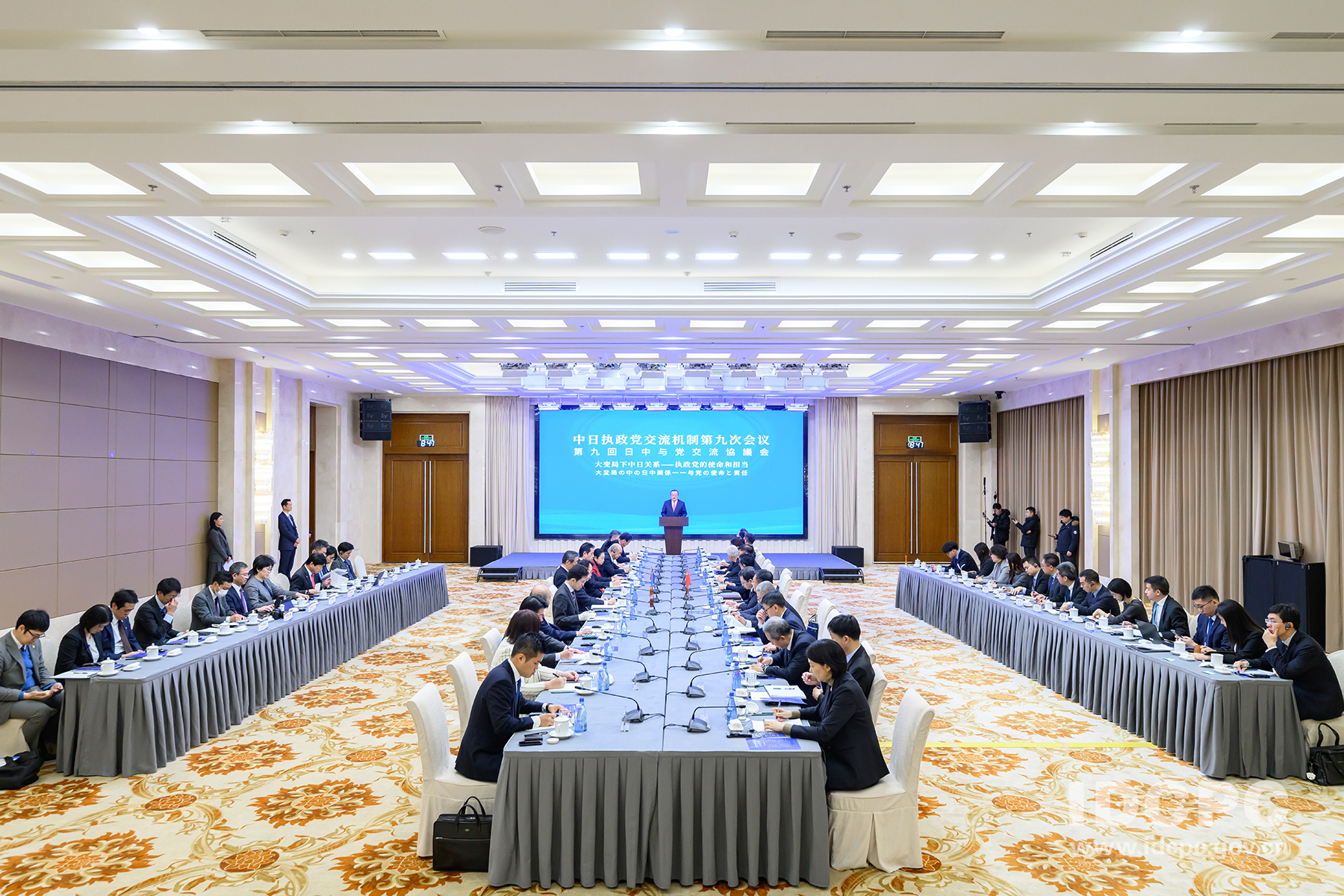
Liu said, since the establishment of the China-Japan ruling parties exchange mechanism 20 years ago, the two sides have conducted candid and in-depth exchanges on bilateral relations and international and regional issues, gathering consensus and contributing to the development of China-Japan relations. In the face of a turbulent and changing world, the ruling parties of China and Japan should take on responsibilities and help build China-Japan relations that meet the requirements of the new era. The two sides must act as leaders of strategic direction, working to translate the shared understanding that the two countries should "be partners, not threats" into policies and actions. The two sides should also serve as guardians of political foundations, upholding the principles of the four China-Japan political documents, respecting each other's core interests and major concerns, and in particular correctly addressing sensitive issues—such as history and the Taiwan question. The two sides should also serve as promoters of exchange and cooperation, actively carry out exchanges between political parties and politicians, promote the implementation of the 10 agreements reached in China-Japan high-level consultation mechanism on people-to-people and cultural exchanges, and expand cooperation platforms such as "political party + sub-national" and "political party + economy and trade", so as to lift bilateral cooperation to a higher level. Both sides should keep differences under control, seek common ground while shelving differences and seek proper measures to manage differences and promote the sound and steady development of China-Japan relations.
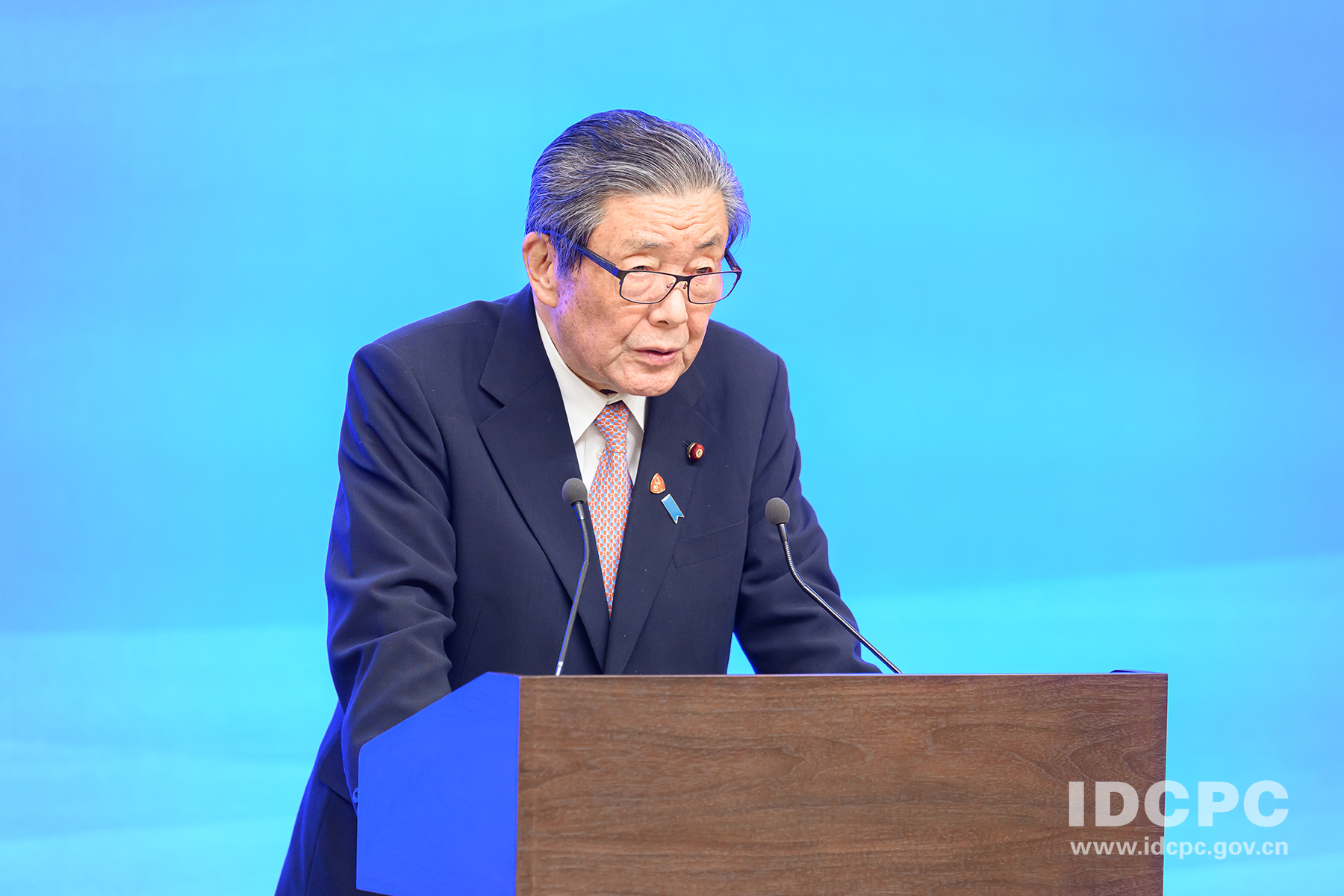
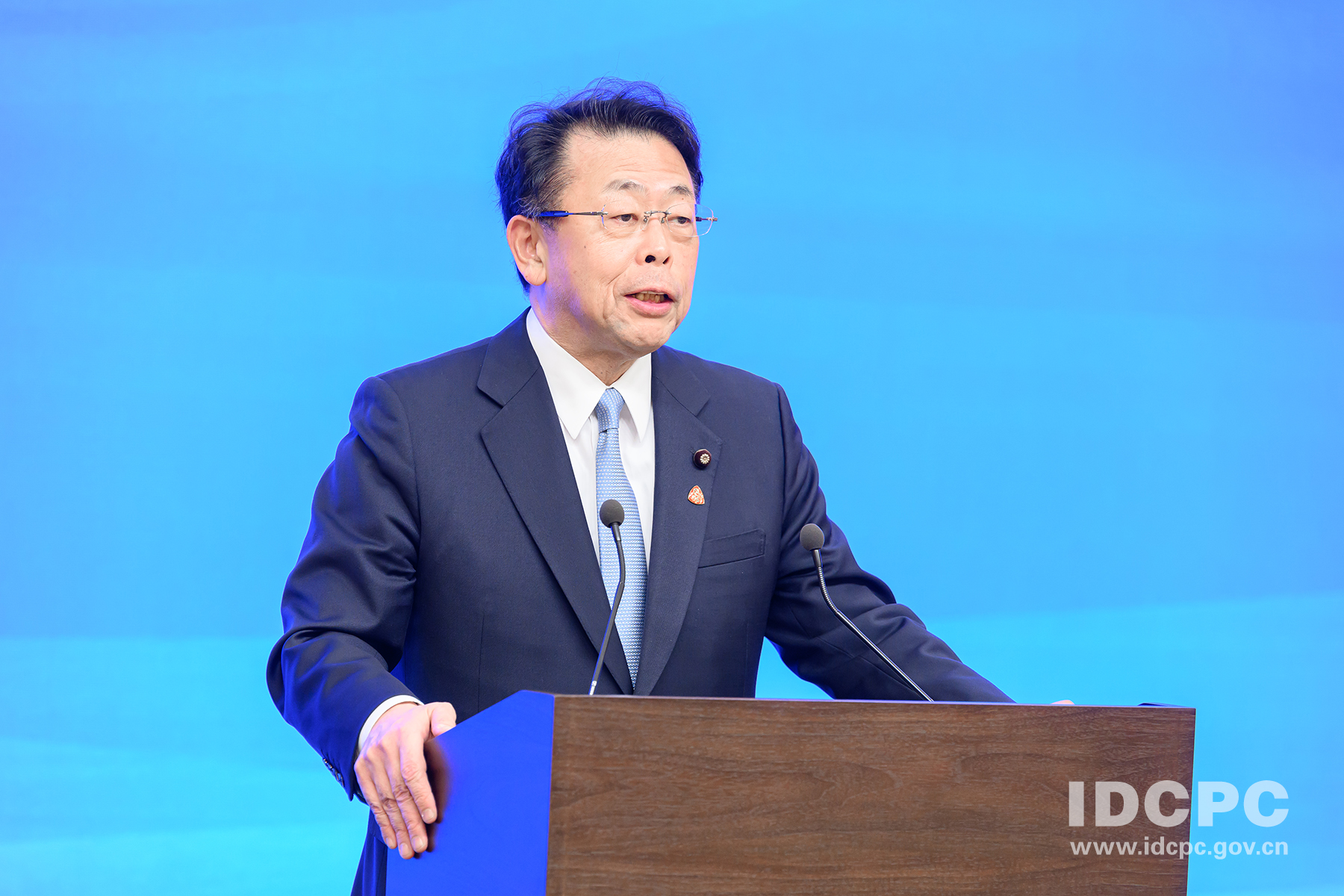
Hiroshi Moriyama and Makoto Nishida expressed condolences to the Chinese side on the earthquake disaster in Dingri County, Xizang, saying that the meeting of the China-Japan ruling parties exchange mechanism has resumed after nearly seven years and will play an important role in the improvement and development of bilateral relations. The Japanese side is willing to work with the Chinese side to implement the important consensus reached by the leaders of the two countries, strengthen inter-party exchanges and cooperation, and enhance mutual understanding and trust. Hiroshi Moriyama expressed his willingness to inherit and carry forward the friendly tradition of the elder generations of political leaders, give play to the role of the mechanism, enhance the friendly feelings of the people, promote pragmatic cooperation in various fields for more results, properly handle differences through dialogue and consultation at all levels, set aside differences and seek common ground, and promote the sustainable development of bilateral strategic relationship of mutual benefit. Makoto Nishida expressed willingness to strengthen communication and dialogue with the Chinese side, promote exchanges and cooperation in such fields as culture, economy, security, declining birthrate, population aging and climate change, bring the people emotionally closer, especially the younger generation, make unremitting efforts for the improvement and development of Japan-China relations and jointly promote regional security and stability.
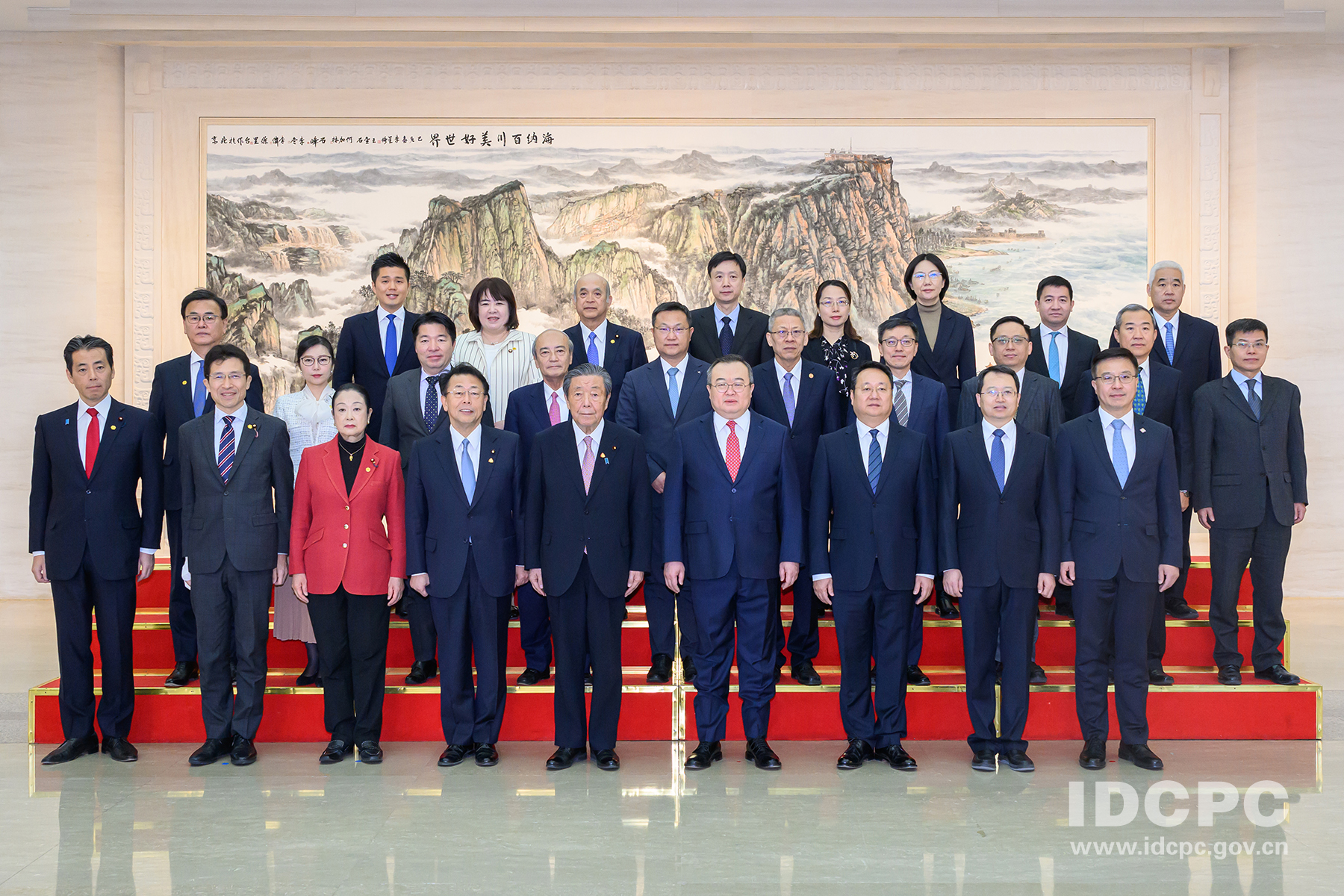
More than 60 people attended the event, including Wang Gang, Deputy Director of the Publicity Department of the CPC Central Committee; Yang Yinkai, Deputy Director of the Office of the Central Commission for Financial and Economic Affairs; Zhao Shitong, Assistant-minister of the International Department of the CPC Central Committee; relevant officials of the Ministry of Foreign Affairs, the National Development and Reform Commission, the Ministry of Education, the Ministry of Commerce, the Ministry of Culture and Tourism, and Beijing Municipality; Tatsuo Fukuda, Executive Acting Secretary-General of the Liberal Democratic Party; Shinako Tsuchiya, Director-General of the International Bureau of the Liberal Democratic Party; and Hideki Niizuma, Chair of Komeito Party's International Affairs Committee.





















